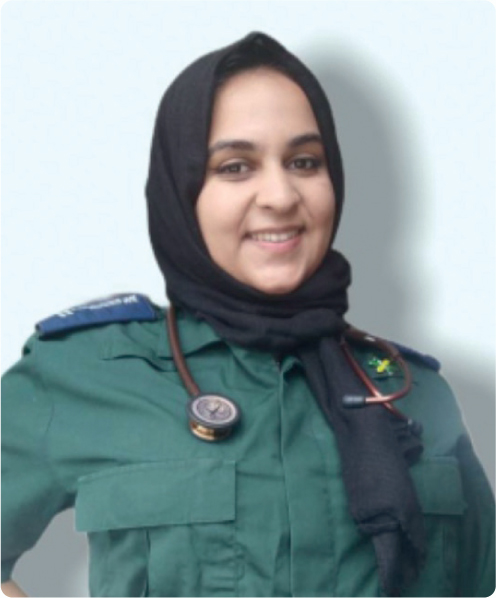
As surreal as it is to say, it has almost been 1 year since I qualified as a paramedic. Three years of essays, OSCEs and revision meant that I now had the ability to practise as a confident, autonomous health professional … surely that would suffice? I was not prepared for the learning curve. When you pass your driving test, many will say that this is when you ‘really’ learn how to drive—the same can be said once a paramedic qualifies.
On one of my very first shifts as a paramedic, I attended a patient who was suffering a stroke. While I knew the actions we had to take as a crew, and made sure it was established that this patient was time-critical, things did not work as well as I wanted them to. Everything that could have gone wrong, did. The patient was hard to extricate and deteriorating significantly; hence I turned to call for another crew to assist us, only to find that both the radio and ‘terrafix’ had gone down. We were 40 miles out of area and were completely unfamiliar with where the nearest hospital was, whether they would admit stroke patients and the number to pre alert. At that moment, the family and my crewmate turned to me to make the decisions as the lead clinician. My main priority was getting the patient onto the ambulance safely. Luckily, many family members had arrived by then and we were able to extricate the patient safely with clear instruction from the crew and start making our way to the hospital. En route, I managed to call about 20 different numbers to find the correct pathway to get this patient treated rapidly while trying to not panic. Even as we, with much surprise, made it to the correct hospital, I was unfamiliar with the processes and pathways there and all I could focus on was the fact that I was not good enough for my patient.
Even though we did the best we could, I could not help but feel as if I needed to do better. I spent the rest of that shift and the evening after thinking of possible scenarios with that patient, and then with others too. Before I knew it, I had signed up to multiple webinars, opened several textbooks and become increasingly filled with dread that I lacked knowledge to provide effective patient care. The more I researched certain topics from neurology to cardiology, the more I realised I did not know. At that moment, I chose to write down exactly what I thought should have been improved in that situation and how I could achieve it. I came to two solutions: being more familiar with the pathways used by hospitals even out of area and storing these numbers and details on my personal phone. There wasn't anything I would've done different clinically despite my initial concerns, and we still managed to get the right care for the patient.
Reflecting on incidents like this has really helped my development over the last year. The idea of having all the responsibility in certain situations, having to make the decisions and show leadership can make us strive for perfection when it is not necessary. This career is a journey full of learning and development with no pressure to know it all from day one. Yes, initially it is hard. There's little you can do to prepare for being ready to manage patients on your own or in unfamiliar situations. However, everyone goes through it.
I would say to NQPs reading this, studying and CPD are great and will make an impact on the way you practise, but take those breaks to rest, and set targets that are achievable to build your progress gradually. No one expects you to know everything.

